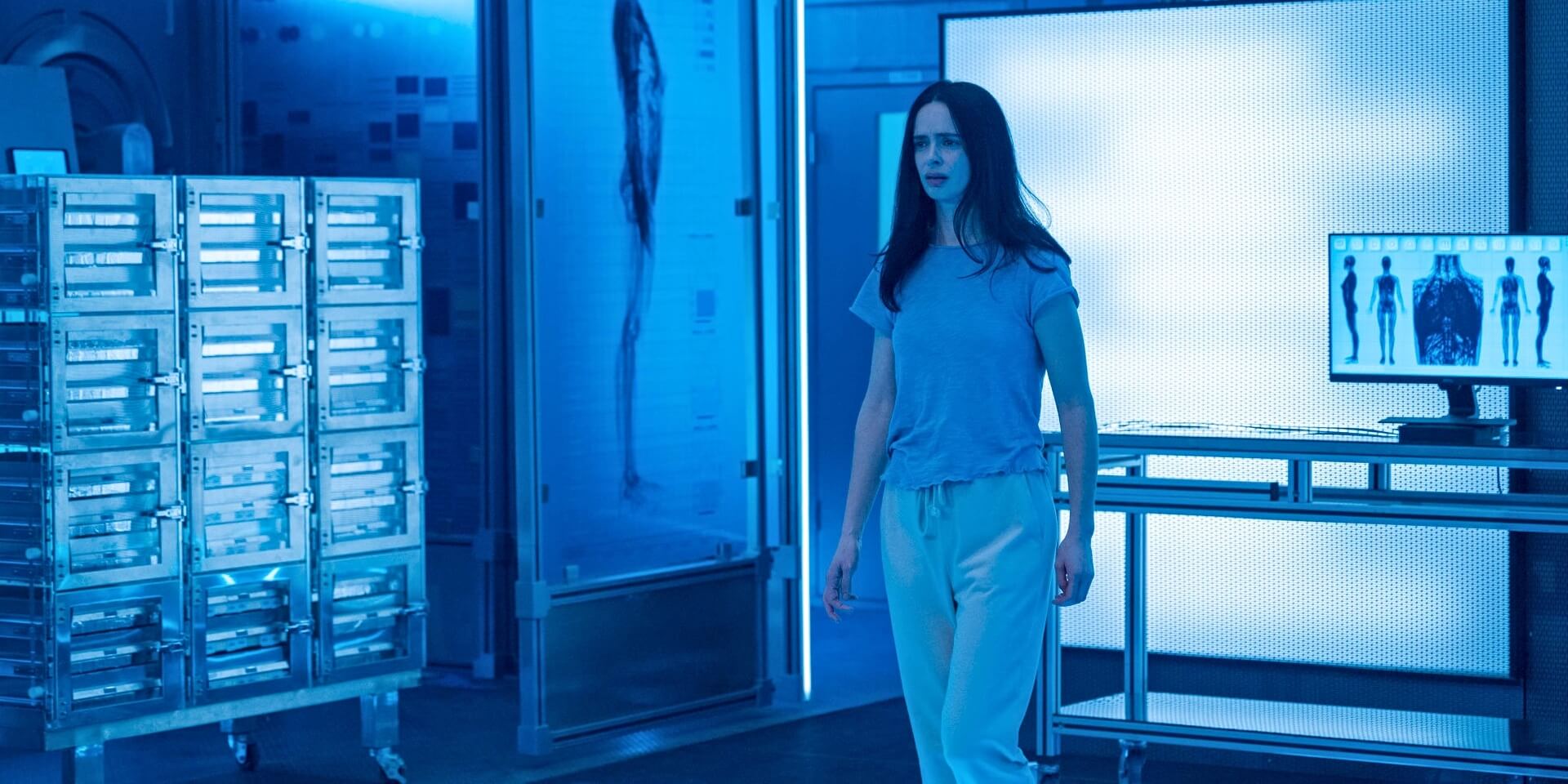ORPHAN BLACK: ECHOES. Reviewing the spin-off of a beloved science fiction series

What would you do if you found out you were printed by a machine? Returning to the beloved universe of viewers, set in the near future, “Orphan Black: Echoes” explores themes related to scientific manipulation and the ambiguity of human existence. Its main character, Lucy, portrayed by Krysten Ritter, plunges into the unknown to uncover the truth about her identity and regain her freedom. And there’s nothing strange about that. After all, each of us would surely have many questions if we didn’t remember our past and found out we were printed. Is “Orphan Black: Echoes” worth our time? We had the pleasure of seeing the series before its premiere.
What would you do if you woke up in a strange place, not knowing who you are, with a psychiatrist who doesn’t directly answer your questions? Moreover, he informs you that you underwent a procedure that may cause memory problems. I would probably escape. That’s what Lucy, the main character of the new science fiction series “Orphan Black: Echoes,” does. She flees through successive rooms until she reaches a chamber where she finds the prototype of her body and discovers that she was printed. Thus begins the real story of Lucy.
In the middle of the 21st century, when an unexpected series of events reveals how deeply her life is mysteriously connected to the lives of others, Lucy decides to unravel the mystery of her origin. She quickly realizes that her search leads to physically and psychologically dangerous realms. To a world where science, love, and betrayal collide brutally. “Orphan Black: Echoes” is set in a world where printing human organs, including hearts, is commonplace thanks to advanced technology and specialized printers, although cloning entire bodies is prohibited. So how was Lucy created? Who did it, and why? What was there before? It is precisely these questions that Lucy tries to find answers to. The only question is whether she will succeed, or if she lives in a world where nothing is as it seems.

In “Orphan Black: Echoes,” you won’t see a world dripping with futuristic inventions and slightly different behaving robots. Here, “printed” people lead ordinary lives, unaware of their true origins. They are part of the community. They are part of the family. They have jobs and homes. They can love. They are no different from the people you pass by on the street every day. Furthermore, when they learn the truth about their existence, they experience similar emotions to ordinary humans. So what is the strength of this series? After all, today scientists already print body parts, such as cells, using 3D printing. Research on Alzheimer’s drugs is also ongoing. There is also the humanoid robot Sophia, endowed with artificial intelligence, traveling the world and giving interviews to the most popular magazines and TV programs. Well, in my opinion, “Orphan Black: Echoes” fits perfectly into the increasingly heated discussion about the use of artificial intelligence and 3D printing.
“Orphan Black: Echoes” appears just after the end of the longest Hollywood strike, sparked in part by the use of artificial intelligence in scripting and the replacement of actors with AI-generated “avatars.” Of course, speaking very briefly. The series also debuts at a time when there is increasing talk of regulating ChatGPT and the need to create humanoid robots. Humanity is asking itself whether there is something to fear and whether all the aforementioned things could turn against it. Meanwhile, Lucy from “Orphan Black: Echoes” dreams only of peace and a normal life. Moreover, when she meets her creator and learns the reasons for her printing, she questions their ethics. Moreover, not only she. Even those closest to the creator of a person accuse her of erroneous motives, excessive scientific ambition, blindness, and lack of morality and entitlement to play the role of the ruler of life and death.
In my opinion, the series “Orphan Black: Echoes,” instead of exploring the consequences of creating human organs and human clones, forces us to think about the justification of the motives behind the development of technologies enabling such experiments. I perceived the behaviors of Lucy and those questioning the righteousness of her creator’s actions as posing the thesis that perhaps instead of asking whether we should fear artificial intelligence and similar things, we should look at ourselves and check what we really want to achieve through such experiments. Maybe we should make sure that our motives are devoid of pride, egocentrism, and overly inflated ambitions that can obscure the true purpose of our actions. And in this, in my opinion, lies the strength of “Orphan Black: Echoes.” That’s why I consider this series successful, although I’m not a fan of science fiction.
The above review is, of course, my subjective assessment, and because I believe that the “Orphan Black” spin-off provides a lot of food for thought, I am even more curious about your opinions on the series “Orphan Black: Echoes.” Write in the comments.

